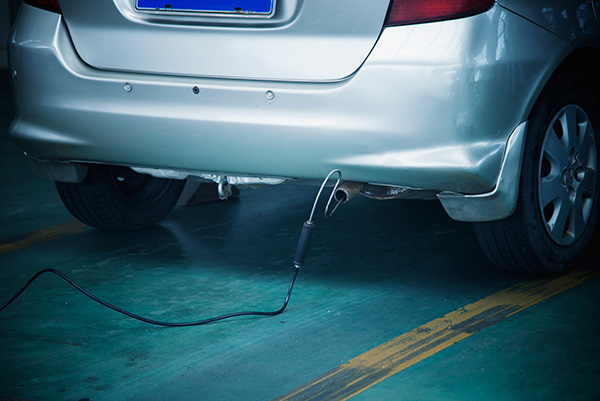
If you live in California, you’ve likely heard of the state's stringent smog check program. This program is one of the most comprehensive and toughest emissions testing requirements in the United States, aimed at reducing harmful pollutants from vehicles. But what makes California's smog check regulations so much stricter than those of other states?
California's Unique Air Quality Issues
One of the primary reasons California has stricter smog checks than other states is its unique air quality challenges. The state has some of the highest levels of pollution in the country, especially in dense urban areas like Los Angeles and the Central Valley. The combination of high population density, large numbers of vehicles, and specific geographic and weather conditions creates a perfect storm for air pollution.
California’s mountains and valleys trap smog, making it harder for the pollutants to dissipate naturally. With such significant air quality issues, California has been proactive in implementing measures that reduce vehicle emissions, including adopting some of the toughest smog standards in the nation.
Stringent Emission Standards Set by CARB
At the heart of California's strict smog check program is the California Air Resources Board (CARB). Established in 1967, CARB is responsible for setting and enforcing air quality standards, including those for vehicle emissions. CARB's regulations often exceed federal Environmental Protection Agency (EPA) standards, meaning that vehicles sold in California must meet stricter emissions criteria than in other parts of the country.
CARB has also pioneered the development of regulations that control pollutants like nitrogen oxides (NOx), carbon monoxide (CO), and hydrocarbons (HCs), all of which contribute to smog formation. These more rigorous emissions standards make it necessary for vehicles in California to be cleaner and more efficient than those in most other states.
Why Some Cars Fail Smog Checks in California
Because California's smog check is more thorough than those in other states, it's not uncommon for vehicles to fail. This could happen for a variety of reasons, but one common issue is older vehicles that weren't originally manufactured to meet CARB standards. Cars built before 1996, for example, often struggle with California's requirements due to their outdated emissions control systems.
Even newer cars can face difficulties if they haven’t been properly maintained. Issues like a malfunctioning oxygen sensor, faulty catalytic converter, or even simple things like worn spark plugs can cause your vehicle to produce higher emissions and fail the test.
How California’s Smog Check Works
California's smog check is designed to ensure that vehicles are not emitting harmful pollutants at a higher level than allowed. The process involves both a visual inspection and an emissions test. Technicians look for issues with the vehicle's emission control components, like the catalytic converter, as well as potential exhaust leaks.
In addition to the visual inspection, vehicles are put through a tailpipe emissions test, where the levels of harmful gasses like carbon monoxide, hydrocarbons, and nitrogen oxides are measured. If a car emits higher levels of these pollutants than allowed, it will fail the smog check.
California also has a "check engine light" rule—if your check engine light is on during the test, your vehicle will automatically fail. This makes it essential to address any potential issues before going in for a smog test.
Special Considerations for Different Vehicle Types
Another reason California's smog check program is considered tougher is the attention paid to different types of vehicles. For example, hybrid vehicles, which rely on both gasoline and electric power, must pass a smog check every two years, just like traditional gas-powered vehicles. While hybrids tend to produce fewer emissions overall, they are still subject to California’s rigorous testing requirements.
Heavy-duty trucks and diesel-powered vehicles must also undergo strict smog tests. Diesel vehicles, in particular, face unique challenges due to their particulate emissions. California’s Diesel Particulate Filter (DPF) regulations mean that even commercial vehicles must be regularly inspected to ensure they’re not contributing to excess pollution.
Need help preparing for a smog check? Let Villa Marina Auto Care get your vehicle in top shape. We do emissions inspections and maintenance to keep your car running clean and efficient.